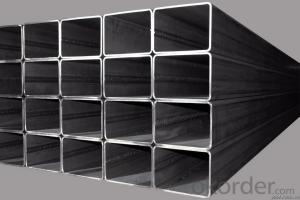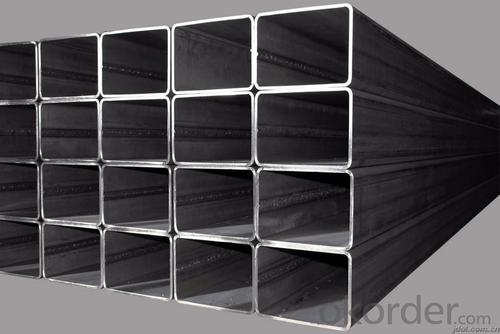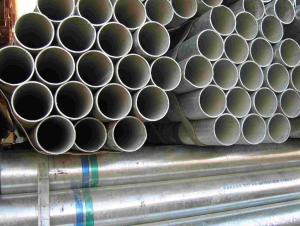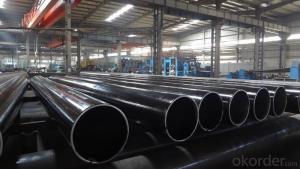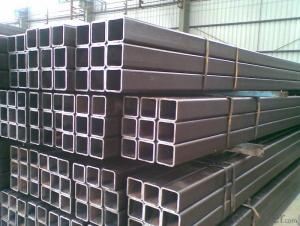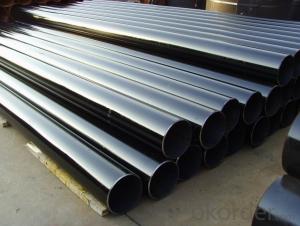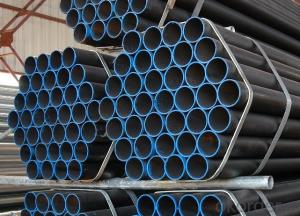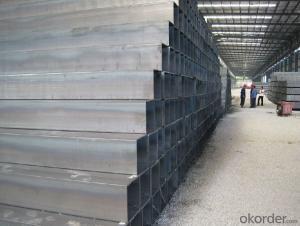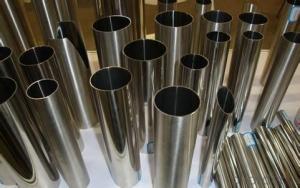ASME API 5L Good Quality Square Steel Pipe
- Loading Port:
- Tianjin
- Payment Terms:
- TT or LC
- Min Order Qty:
- 25 m.t.
- Supply Capability:
- 10000 m.t./month
OKorder Service Pledge
OKorder Financial Service
You Might Also Like
Product Description:
1、Structure of Hollow Section Steel Pipe Various Size:
The square tubes are used in structural projects, shelves, racks, trailers and in ornamental purpose. The framework made by square steel tubes, is used for providing support to the roof. This framework is also used as roof top ventilation baffles. With compare to round steel tubes, square steel tubes are little more efficient. To be used for construction, furniture structures as well as other fabrication purposes. It is widely used in building, machine, chemical equipment, automobile industrial, container, it is also applied to agriculture and mine machine.
2、Main Features of Hollow Section Steel Pipe Various Size:
• High manufacturing accuracy
• High strength
• Small inertia resistance
• Strong heat dissipation ability
• Good visual effect
• Reasonable price
3、Hollow Section Steel Pipe Various Size Specification:
Standard | ASTM A500, GB6728 |
Grade | A, B, C, Q195, Q235, Q215 |
Thickness | 0.6-10MM |
Section Shape | Square |
Outer Diameter | 10*10-500*500 |
Place of Origin | TIANJIN, China (Mainland) |
Secondary Or Not | Non-secondary |
Application | Hydraulic Pipe |
Technique | HOT-ROLLED |
Certification | CO, MTC, CI, PL |
Surface Treatment | factory state or painted black |
Special Pipe | |
Alloy Or Not | Non-alloy |
Length | 5-12M |
Outer Diameter | 10*10-500*500 |
1) Material: A, B, C, Q195, Q235, Q215
2) Specification range: 10*10-500*500 WT:0.6-10MM ,length:6-12m or according to the requirement of clients.
3) Excutive standards:GB,ASME API5L.ASTM A 106/A53,Despite of the above standards,we can also supply seamless steel pipe with standard of DIN,JIS,and so on,and also develop new products according to the requirements of our clients!
4) Surface:black lacquered,varnish coating or galvanized.
5) Ends:Beveled or square cut,plastic capped,painted.
6) Packing:bundles wrapped with strong steel strip,seaworthy packing.
4、Packaging & Delivery
Packaging Details: | seaworthy package,bundles wrapped with strong steel strip |
Delivery Detail: | 15-30days after received 30%TT |
5、FAQ of Hollow Section Steel Pipe Various Size:
①How is the quality of your products?
Our products are manufactured strictly according to national and internaional standard, and we take a test
on every pipe before delivered out. If you want see our quality certifications and all kinds of testing report, please just ask us for it.
Guaranteed: If products’ quality don’t accord to discription as we give or the promise before you place order, we promise 100% refund.
②How about price?
Yes, we are factory and be able to give you lowest price below market one, and we have a policy that “ for saving time and absolutely honest business attitude, we quote as lowest as possible for any customer, and discount can be given according to quantity”,if you like bargain and factory price is not low enough as you think, just don’t waste your time.Please trust the quotation we would give you, it is professional one.
③Why should you choose us?
Choice happens because of our quality and price. Additionally, we can also offer professional products inquiry, products knowledge train (for agents), fast goods delivery, outstanding customer solution proposals. Our service formula: good quality + good price + good service=customer’s trust.
SGS test is available. Customer inspection before shipping is welcome. Third party inspection is OK.
6、Hollow Section Steel Pipe Various Size Images:
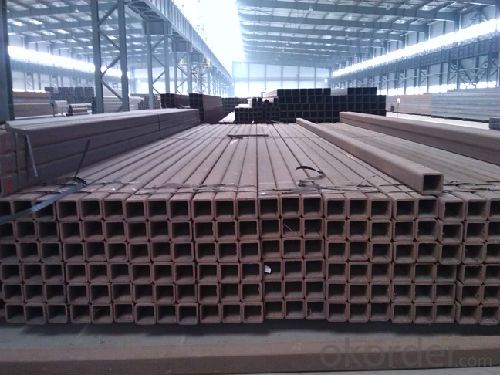
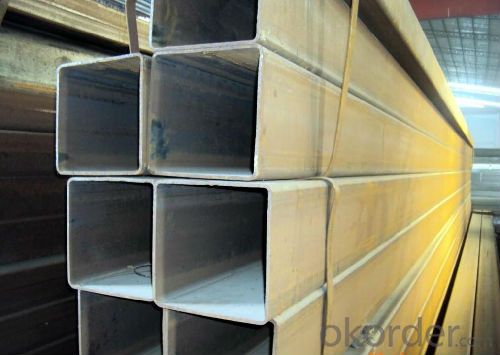
- Q: What are the different types of steel pipe coatings for marine applications?
- There are several types of steel pipe coatings commonly used for marine applications, including epoxy coatings, polyurethane coatings, zinc coatings, and fusion-bonded epoxy coatings. Each coating offers different benefits such as corrosion resistance, abrasion resistance, and protection against marine organisms. The choice of coating depends on factors such as the specific marine environment, the level of corrosion protection required, and the budget.
- Q: Can steel pipes be used for the construction of offshore wind farms?
- Yes, steel pipes can be used for the construction of offshore wind farms. Steel pipes are commonly used for various offshore applications, including the installation of wind turbine foundations, subsea cables, and other infrastructure. They offer durability, strength, and resistance to corrosion, making them suitable for the challenging marine environment. Additionally, steel pipes can be easily fabricated and installed, allowing for efficient construction processes in offshore wind farm projects.
- Q: How big is the seamless steel tube of DN50?
- Domestic steel pipe diameter is generally divided into A series and B series, DN50 pipe diameter of 60mm and 57mm respectively, the wall thickness should be based on your design pressure, temperature, pipe material to calculate.
- Q: What type of steel pipe for security windows?
- Stainless steel security window generally use 25 square tubes and 19 round tubes! 25/38 tubes and 22 round tubes are also available!
- Q: Can steel pipes be used for stormwater management systems?
- Yes, steel pipes can be used for stormwater management systems. Steel pipes are commonly used in stormwater management systems due to their durability, strength, and resistance to corrosion. They can efficiently handle the flow of stormwater and are suitable for underground installation, making them a reliable choice for managing stormwater runoff.
- Q: What are the different types of steel pipe fittings for plumbing systems?
- Some common types of steel pipe fittings used in plumbing systems include elbows, tees, unions, couplings, reducers, and caps. Elbows are used to change the direction of the pipe, while tees allow for branching off into multiple directions. Unions are used to join two pipes together, couplings are used to connect two pipes of the same diameter, and reducers are used to connect pipes of different diameters. Caps are used to seal the end of a pipe.
- Q: Difference and application of seamless hot rolled pipe and cold drawn pipe in seamless steel tube
- type3.1, seamless steel pipe according to the different production methods can be divided into hot-rolled pipe, cold rolled tube, cold drawn tube, extrusion tube and so on3.2, according to the shape of the classification of circular tubes, special-shaped tubes of the division, except the square tube and rectangular tube, there are elliptical tube, semicircle tube, triangle tube, hexagonal tube, convex shaped tube, plum shaped tube and so on3.3, according to the different material, divided into ordinary carbon structure tube, low alloy structure tube, high quality carbon structure tube, alloy structure tube, stainless steel tube and so on3.4, according to special use, there are boiler tubes, geological pipes, oil pipes and so on
- Q: What are the different methods of pipe support for steel pipes?
- Various methods exist for supporting steel pipes, each aimed at guaranteeing pipe stability, alignment, and protection. Some frequently employed techniques are as follows: 1. Pipe Hangers: These devices suspend or bear the weight of the pipe from above. Typically crafted from metal, they can be adjustable or fixed, allowing for easy installation and maintenance. Depending on the application, pipe hangers can take the form of clevis hangers, beam clamps, or pipe rollers. 2. Pipe Shoes: These supports attach directly to the underside of the pipe, providing a stable resting surface. Usually made from steel or other durable materials, pipe shoes prevent pipe movement, absorb vibrations, and distribute weight evenly. They find common use in applications involving high temperatures or requiring thermal expansion. 3. Pipe Clamps: These devices fasten pipes together or secure them to structures. Constructed primarily of metal, pipe clamps come in various sizes and designs to accommodate different pipe diameters and configurations. They provide support and prevent sagging or movement, particularly in areas with directional or elevation changes. 4. Pipe Racks: These structures are custom-designed to support multiple pipes in an organized and secure manner. Commonly found in industrial settings like refineries or power plants, pipe racks store or support large quantities of pipes. Typically made of steel, they can be tailored to suit different pipe sizes and layouts. 5. Pipe Guides: These devices facilitate pipe movement control, especially during thermal expansion or contraction. Fixed to the structure, pipe guides offer a sliding surface that accommodates longitudinal pipe movement. They are frequently utilized in applications involving temperature variations, such as steam or hot water systems. These represent just a few examples of the numerous methods available for supporting steel pipes. The choice of support method depends on factors such as pipe size, weight, temperature, and specific application requirements. Selecting the appropriate support method is crucial to ensure pipe longevity and integrity while preventing issues like sagging, misalignment, or failure.
- Q: Can steel pipes be used for chimney flues?
- Yes, steel pipes can be used for chimney flues. Steel pipes are often used in chimney systems due to their durability, heat resistance, and ability to withstand high temperatures. However, it is important to ensure that the steel pipes meet the necessary safety and building code requirements for chimney flues.
- Q: What is the typical diameter range of steel pipes?
- The typical diameter range of steel pipes can vary depending on various factors such as the intended application, industry standards, and specific project requirements. However, in general, steel pipes are available in a wide range of diameters to suit different purposes. Commonly used diameters for steel pipes can range from small diameters of around 0.5 inches (12.7 mm) to larger diameters of several feet or more. This range allows for various applications such as plumbing, oil and gas transportation, structural support, and industrial processes. Ultimately, the specific diameter of a steel pipe will be determined by the specific needs of the project or application at hand.
Send your message to us
ASME API 5L Good Quality Square Steel Pipe
- Loading Port:
- Tianjin
- Payment Terms:
- TT or LC
- Min Order Qty:
- 25 m.t.
- Supply Capability:
- 10000 m.t./month
OKorder Service Pledge
OKorder Financial Service
Similar products
Hot products
Hot Searches
Related keywords
